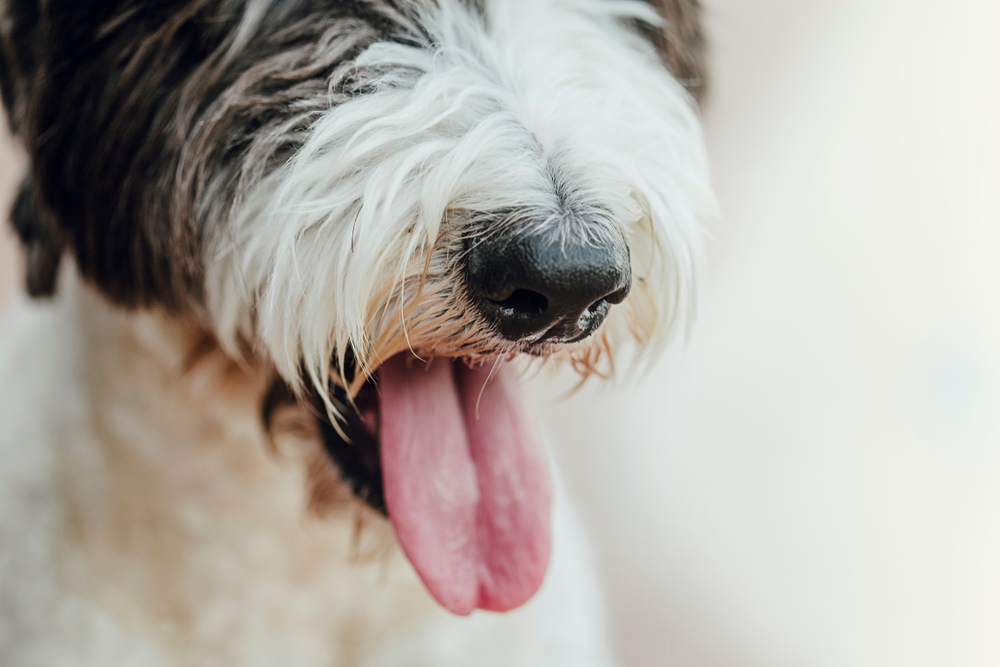Signs and Causes of Rapid Breathing in Dogs

Rapid breathing in dogs, also known as tachypnea, can manifest in various ways and be indicative of several underlying health issues, ranging from transient stress or overheating to more serious medical conditions. Here are some signs and potential causes:
Signs of Rapid Breathing in Dogs
- Increased Respiratory Rate: The most obvious sign is a faster breathing rate. Normal respiratory rates in dogs vary but typically range between 15 and 30 breaths per minute. Rapid breathing can exceed this range significantly.
- Shallow Breathing: Along with an increased rate, the breaths may be more shallow than usual.
- Noisy Breathing: You may notice unusual sounds like wheezing or snorting, which aren’t typical during regular breathing.
- Effortful Breathing: Look for signs of laborious breathing where the dog appears to be exerting more effort to breathe. This can include the use of abdominal muscles to help with breathing.
- Change in Posture: Dogs may extend their necks or assume a ‘praying’ or ‘play bow’ position to breathe more easily.
- Panting: While panting is normal in dogs, especially after exercise or in hot weather, excessive panting without a clear reason can be a concern.
- Pale or Blue-Tinged Gums: Indicative of oxygen deprivation, this is a serious sign and requires immediate veterinary attention.
- Restlessness or Lethargy: A change in activity level, either restlessness or unusual lethargy, can accompany rapid breathing.
- Coughing: Persistent coughing along with rapid breathing can be a sign of respiratory or cardiac issues.
- Reduced Appetite: Some dogs might eat less or show disinterest in food.
- Other Behavioral Changes: Any other uncharacteristic behavior accompanying rapid breathing should be noted.
Potential Causes of Rapid Breathing in Dogs
- Heatstroke or Overheating: One of the most common reasons for rapid breathing, especially in hot weather or after vigorous exercise.
- Stress or Anxiety: Dogs often breathe rapidly when they are stressed or anxious.
- Pain or Discomfort: If in pain, dogs might breathe faster than usual.
- Heart Disease: Can lead to inefficient circulation and oxygenation, causing rapid breathing.
- Respiratory Disorders: Conditions like pneumonia, bronchitis, or asthma.
- Allergic Reactions: Allergies can cause respiratory distress.
- Ingestion of Toxic Substances: Certain poisons or toxic foods can affect a dog’s breathing rate.
- Injury or Trauma: Internal injuries may not be immediately visible but can cause rapid breathing.
When to Seek Veterinary Help
- Persistent Rapid Breathing: If the rapid breathing lasts for more than a few minutes without a clear reason (like exercise), it’s time to call the vet.
- Accompanying Symptoms: Rapid breathing combined with any other concerning symptoms (like those mentioned above) warrants a veterinary visit.
- Change in Gum Color: Pale, blue-tinged, or very bright red gums are a sign of a serious problem.
- Behavioral Changes: Any unusual behavior accompanying the rapid breathing is a reason to consult a veterinarian.
Conclusion
Rapid breathing in dogs can be benign in some cases, like after exercise or during excitement, but it can also be a symptom of a serious health issue. Always observe the context and accompanying symptoms. When in doubt, it’s better to err on the side of caution and consult with a veterinarian to ensure your pet’s health and safety.
